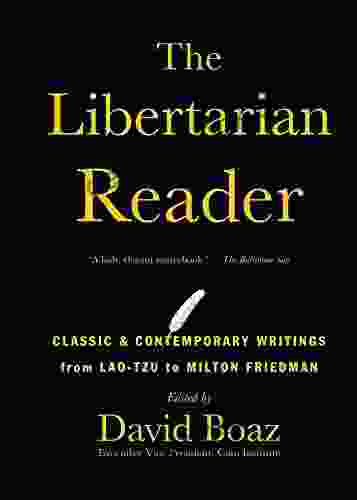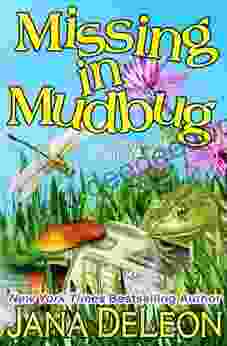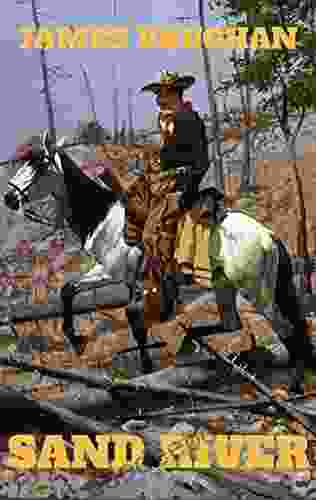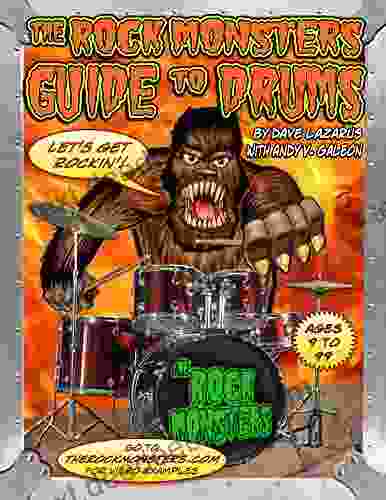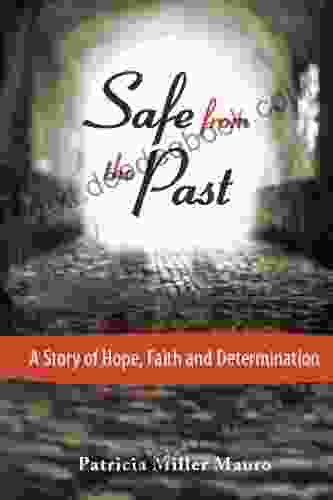Classic and Contemporary Writings from Lao Tzu to Contemporary Thinkers: Exploring Eastern and Western Perspectives on Wisdom and Well-being

The pursuit of wisdom and well-being has been a central theme in human thought and culture for centuries. From ancient Eastern philosophies to contemporary Western thinkers, there has been a rich tradition of reflection and inquiry into the nature of the good life and the ways to achieve it. This article explores some of the classic and contemporary writings that have shaped our understanding of these timeless questions, offering insights from both Eastern and Western perspectives.
4.5 out of 5
| Language | : | English |
| File size | : | 3766 KB |
| Text-to-Speech | : | Enabled |
| Enhanced typesetting | : | Enabled |
| Word Wise | : | Enabled |
| Print length | : | 482 pages |
| Screen Reader | : | Supported |
The Wisdom of Lao Tzu
Lao Tzu, a legendary Chinese philosopher who lived in the 6th century BCE, is considered the founder of Taoism. His teachings, as recorded in the Tao Te Ching, emphasize the importance of living in harmony with the natural order of things. Lao Tzu believed that the pursuit of material wealth, power, and status leads to suffering, and instead advocated for a life of simplicity, humility, and compassion.
"The Tao that can be spoken of is not the true Tao; the name that can be named is not the true name."
Lao Tzu's philosophy has had a profound influence on both Eastern and Western thought. His teachings have inspired generations of artists, writers, and spiritual seekers, and continue to offer valuable insights into the nature of reality, the human condition, and the path to well-being.
Classical Eastern Philosophy
In addition to Taoism, other classical Eastern philosophies that have explored the nature of wisdom and well-being include Confucianism, Buddhism, and Hinduism.
- Confucianism, founded by the Chinese philosopher Confucius in the 6th century BCE, emphasizes the importance of social harmony, filial piety, and ethical behavior. Confucius believed that a well-ordered society is essential for individual well-being, and that individuals have a responsibility to contribute to the common good.
- Buddhism, founded by the Indian prince Siddhartha Gautama in the 5th century BCE, offers a path to liberation from suffering through the practice of compassion, mindfulness, and wisdom. Buddha taught that the root of suffering is attachment, and that the path to enlightenment lies in letting go of our desires and attachments.
- Hinduism is a complex and diverse religious tradition that originated in ancient India. Hindu scriptures, such as the Vedas and the Upanishads, emphasize the importance of spiritual self-realization, and offer a variety of paths to achieve this goal, including meditation, yoga, and devotion.
These classical Eastern philosophies offer a rich and diverse collection of wisdom traditions that have shaped human thought and culture for centuries. Their teachings continue to provide insights into the nature of the good life and the ways to achieve it.
Contemporary Western Thinkers
In the West, there has also been a long tradition of philosophical inquiry into the nature of wisdom and well-being. Contemporary Western thinkers have built upon this tradition, offering new perspectives and insights into these timeless questions.
- Stoicism, a philosophy that originated in ancient Greece and Rome, emphasizes the importance of virtue, resilience, and acceptance. Stoic philosophers believe that true happiness is found in living in accordance with nature and reason, and in accepting the things that we cannot change.
- Existentialism, a philosophical movement that emerged in the 19th century, emphasizes the importance of individual freedom, choice, and responsibility. Existentialist philosophers believe that each individual is responsible for creating their own meaning and purpose in life.
- Phenomenology, a philosophical movement that emerged in the early 20th century, emphasizes the importance of subjective experience. Phenomenologists believe that true knowledge of the world can only be gained through a direct and unmediated experience of it.
- Psychology, a scientific discipline that emerged in the late 19th century, offers a naturalistic perspective on human behavior and experience. Psychologists study the cognitive, emotional, and behavioral processes that underlie human thought and action, and offer evidence-based interventions to promote mental health and well-being.
- Spirituality, a broad term that refers to a variety of beliefs and practices related to the human search for meaning and purpose, has also been the subject of increasing attention in recent years. Contemporary scholars are exploring the role of spirituality in promoting health, well-being, and resilience.
These contemporary Western thinkers offer a diverse range of perspectives on the nature of wisdom and well-being. Their work provides new insights into these timeless questions, and offers valuable tools and techniques for cultivating wisdom and well-being in our own lives.
The pursuit of wisdom and well-being is a lifelong journey. There is no single right path to achieve these goals, but the classic and contemporary writings discussed in this article offer a rich and diverse collection of insights and guidance. By studying these writings, we can learn from the wisdom of the ages and apply it to our own lives, ultimately creating a more fulfilling and meaningful existence.
Whether you are drawn to the ancient teachings of Lao Tzu or the contemporary insights of Western thinkers, there is something in this article for everyone. May these writings inspire you on your own journey of wisdom and well-being.
4.5 out of 5
| Language | : | English |
| File size | : | 3766 KB |
| Text-to-Speech | : | Enabled |
| Enhanced typesetting | : | Enabled |
| Word Wise | : | Enabled |
| Print length | : | 482 pages |
| Screen Reader | : | Supported |
Do you want to contribute by writing guest posts on this blog?
Please contact us and send us a resume of previous articles that you have written.
 Novel
Novel Chapter
Chapter Text
Text Story
Story Genre
Genre Paperback
Paperback E-book
E-book Sentence
Sentence Bibliography
Bibliography Foreword
Foreword Preface
Preface Footnote
Footnote Manuscript
Manuscript Scroll
Scroll Tome
Tome Bestseller
Bestseller Library card
Library card Narrative
Narrative Biography
Biography Memoir
Memoir Encyclopedia
Encyclopedia Narrator
Narrator Character
Character Librarian
Librarian Catalog
Catalog Borrowing
Borrowing Archives
Archives Study
Study Research
Research Lending
Lending Reserve
Reserve Reading Room
Reading Room Special Collections
Special Collections Interlibrary
Interlibrary Literacy
Literacy Study Group
Study Group Dissertation
Dissertation Storytelling
Storytelling Book Club
Book Club Theory
Theory John Augustine Zahm
John Augustine Zahm Caitlin Kelly
Caitlin Kelly L J Martin
L J Martin Ellen Airgood
Ellen Airgood Lisa Wright
Lisa Wright Chris Goertzen
Chris Goertzen Herb Alpert
Herb Alpert Shannon L Alder
Shannon L Alder Veronika Prielozna
Veronika Prielozna Linda Bridey
Linda Bridey Frankie Love
Frankie Love Kay Kiser
Kay Kiser Ernst Lothar
Ernst Lothar Renee Herrington
Renee Herrington Marty Laster
Marty Laster Deborah Brown
Deborah Brown Ibrahim Mustapha
Ibrahim Mustapha Edmund White
Edmund White Jerome Pohlen
Jerome Pohlen Louis A Del Monte
Louis A Del Monte
Light bulbAdvertise smarter! Our strategic ad space ensures maximum exposure. Reserve your spot today!
 Anton FosterFollow ·4.2k
Anton FosterFollow ·4.2k Herbert CoxFollow ·9.5k
Herbert CoxFollow ·9.5k Bobby HowardFollow ·17.4k
Bobby HowardFollow ·17.4k Devin CoxFollow ·11.6k
Devin CoxFollow ·11.6k Jan MitchellFollow ·18.2k
Jan MitchellFollow ·18.2k Hugh ReedFollow ·11.1k
Hugh ReedFollow ·11.1k David Foster WallaceFollow ·7.1k
David Foster WallaceFollow ·7.1k Jaime MitchellFollow ·12.7k
Jaime MitchellFollow ·12.7k
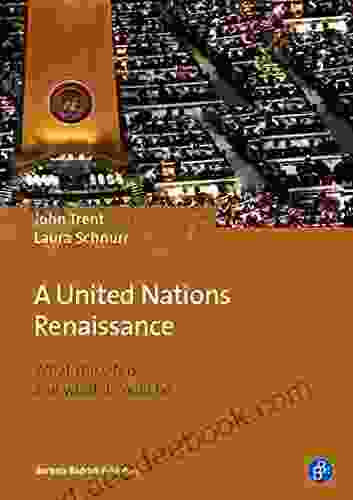
 Jack Powell
Jack PowellThe United Nations Renaissance: A New Era of Global...
The United Nations was founded in 1945 in...
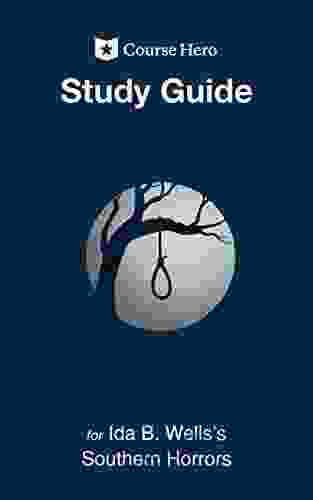
 Banana Yoshimoto
Banana YoshimotoMastering the Art of Critical Analysis: A Comprehensive...
Ida B. Wells-Barnett, a...

 Brian West
Brian WestWhat You Need To Know About The Inner Lives Of Men:...
Understanding the...
4.5 out of 5
| Language | : | English |
| File size | : | 3766 KB |
| Text-to-Speech | : | Enabled |
| Enhanced typesetting | : | Enabled |
| Word Wise | : | Enabled |
| Print length | : | 482 pages |
| Screen Reader | : | Supported |


